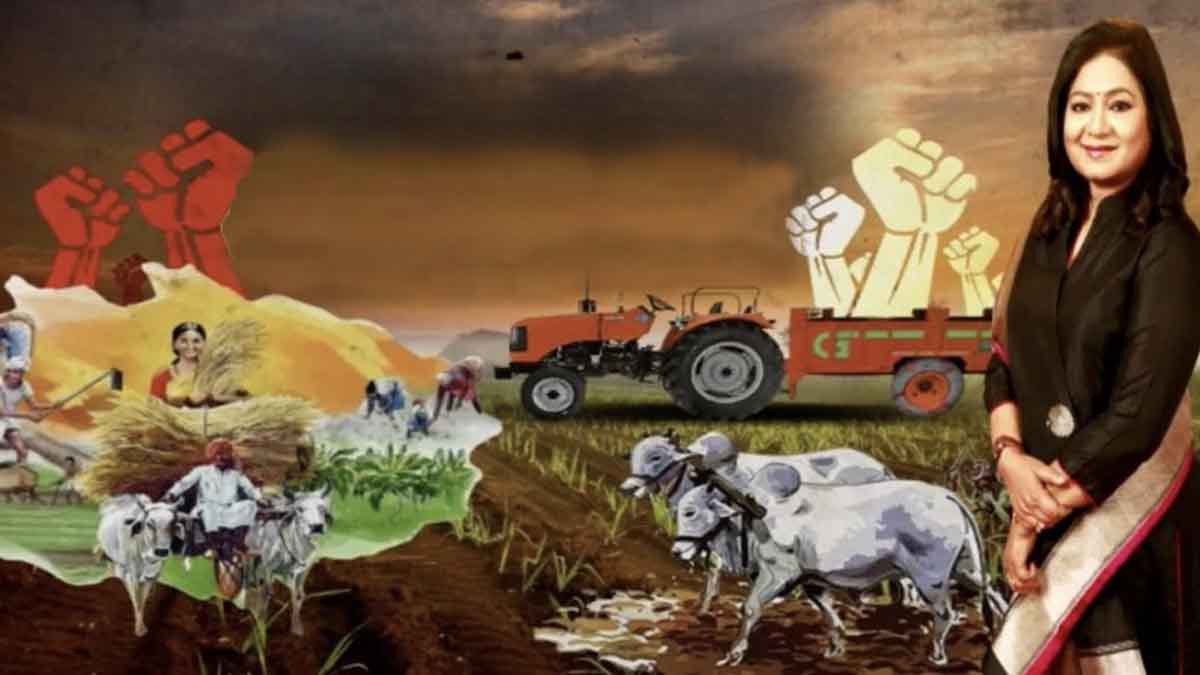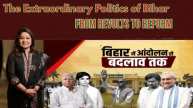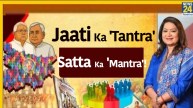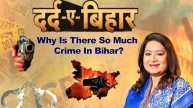Farmers in India are incredibly patient. At every step, however, their patience is tested. They set out for protests on the roads, only to return home at the slightest hint of reassurance. Despite hard work and expenses, if they don’t get the right price for their crops, they become complacent to sell at lower prices, but patience doesn’t provide answers.
Whether promises made during election seasons are fulfilled or not, farmers maintain their patience. With new hope, they continue to vote in every election. Now the question arises: is change possible in the agricultural sector just by the patience of farmers? Will there be an increase in their income? What kind of agitation do farmers need in their fields?
The Modi government has announced the recognition of five personalities with the Bharat Ratna this year, two of whom are connected to the agriculture sector. Both have played a significant role in writing the success stories of major changes in the agricultural sector according to their time, so now it’s time for a new revolution in the fields. The trend is to involve more and more youth in farming, so it is very important to understand the changes that have come in Indian agriculture through the efforts of Chaudhary Charan Singh and Dr. M.S. Swaminathan.
Farmer movements before independence
Dr. M.S. Swaminathan is no longer in this world, but his recognition with the Bharat Ratna will surely inspire many young scientists in the agriculture sector to experiment with new ideas. Agriculture contributes nearly 20% to the country’s GDP. There is great potential for new experiments and employment in this sector. However, the recurring cycle of farmer protests, where they head out to the streets only to return home when given minimal assurances, raises the question: why do our farmers raise the banner of their protests?
How much attention do the voices of protesting farmers receive? History reveals that most farmer movements in the country took place before independence, resonating with Mahatma Gandhi’s ideals. Gandhi envisioned Gram Swaraj as the backbone of rural society, namely the farmers. Just before independence, a significant farmer movement began in Bengal, known as the Tebhaga Movement, where struggles ensued to secure two-thirds of the crop for sharecroppers.
The heat generated by this movement in Bengal showed leftist groups a new path. During that period, some leaders of the Indian Communist Party proposed to escalate the movement by raising the slogan of land to the tillers. Simultaneously, a major peasant movement was also underway in Telangana, considered the largest guerrilla struggle of farmers in modern India, against the feudal system of the Hyderabad state.
The issues related to farmers’ rights were raised by both the communists and the socialists. At that time, Congress used to be identified with the symbol of two bulls. By keeping rural India and farmers at the centre, Congress had adopted the symbol of two bulls to connect with the country’s largest segment, the farmers. While the trend of rallying votes in the name of farmers continued, the plight of farmers did not see much improvement.
In the 1970s, the struggle for farmers’ rights intensified in Maharashtra under the leadership of Sharad Joshi. In the 1980s, the Raitha Sangha organization in Karnataka raised issues concerning farmers. From 1978 to 1984, the farmers’ movement in Punjab shook the entire country. The Indian Farmers Union demanded higher procurement prices for wheat and rice in Punjab, along with subsidies on electricity, diesel, fertilizers, and debt waivers.
Farmers seized Victory Square to India Gate
Nearly 38 years ago, the farmers’ threat was heard in Delhi as well. At that time, Rajiv Gandhi was in the Prime Minister’s chair. Under the leadership of farmer leader Mahendra Singh Tikait, more than five lakh farmers from several states gathered at Delhi’s Boat Club. The major demand of the farmers was to get a higher support price for sugarcane and free electricity and water. Farmers seized Victory Square to India Gate. The Boat Club was filled with farmers’ tractors and trolleys. Despite repeated warnings from the government, the farmers were not ready to move. From the stage, Mahendra Singh Tikait declared, “India Gate is here in Delhi.” Seeing this massive movement, the Rajiv government had to accept all 35 demands of the Indian Farmers Union. After that, did the movement end?
Farmer movements created opportunities for politics
Most farmer movements gave birth to a new political trend. The Singur and Nandigram movements in West Bengal led to Mamata Banerjee’s rise to power. Whether it was the Bhatta-Parsaul in Uttar Pradesh or the POSCO resistance movement in Odisha, politics saw opportunities in every farmer movement. All political parties tailored their vote banks according to their capabilities and conveniences, but there was no significant improvement in the economic condition of farmers.
In 2020, when the Modi government introduced three amendment laws for agricultural reforms, farmers once again took to the streets. Due to the strong opposition from farmers, the government had to withdraw all three laws. Politics always seeks opportunities in farmers’ movements. It is a strange coincidence that on Thursday, farmers showed their anger at the Delhi border, and on Friday, the Modi government announced the Bharat Ratna for Chaudhary Charan Singh. It is also a strange coincidence that until yesterday, Jayant Chaudhary, who was being considered for an alliance with Akhilesh Yadav, is now set to join the BJP’s chariot. But the big question is, when will the doors of fate for farmers open? When will their movement reach a beautiful conclusion?
Farmers will again turn towards Delhi with their demands.
It is the strength of farmers that forced Prime Minister Modi to announce the withdrawal of agricultural reform laws in Parliament. History testifies that governments have had to yield to farmers several times, but a bitter truth of our country’s politics is that farmers have never been a vote bank for any single party. They have not even been significantly influenced by their agitational leaders. Today, the Rashtriya Lok Dal, recognized as the farmers’ party, has found it difficult to sustain itself without alliances.
In recent years, prominent faces of farmer movements like Rakesh Tikait have tried their luck in elections, but they have not been successful in reaching the parliament or state assemblies. It is quite possible that within the next few weeks, farmers will once again turn towards Delhi with their demands, sit on hunger strikes, and agitate on the borders.
Big political leaders try to portray themselves as the greatest benefactors of farmers, but the big question remains: did an honest effort to open the doors of fate for farmers and make agriculture profitable actually take place? Mahendra Singh Tikait used to say that if someone asks for sixteen annas and is given four, they should accept it. This sentiment aligns with the typical mindset of an Indian farmer. The patient Indian farmer becomes somewhat satisfied with a little. To truly improve the condition of farmers and agriculture, more than just protests on the streets are needed. We need a revolutionary mindset like that of Chaudhary Charan Singh and a scientific perspective like that of M.S. Swaminathan.













